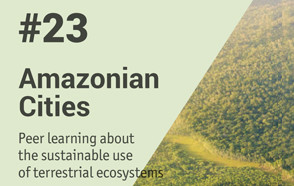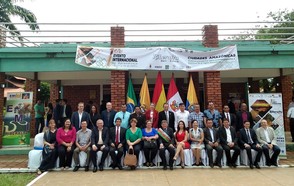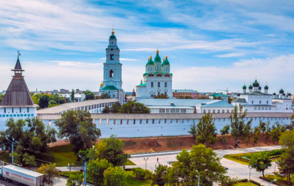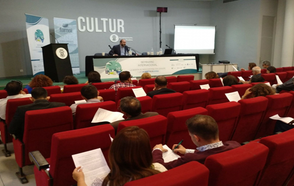
UCLG in collaboration with the Latin American Federation of Cities, Municipalities and Associations of Local Governments (FLACMA), the International Labour Organization (ILO) and the Association of Municipalities of Bolivia (AMB), organized last April a peer learning event on the sustainable use of terrestrial ecosystems to highlight the main urban challenges and opportunities in Amazonian cities. A glimpse into the interesting experiences, challenges and opportunities that were shared and discussed during the peer learning event in Riberalta is now online with this publication about “Amazonian Cities. Peer Learning about the sustainable use of territorial ecosystems”.
Development is not an antagonist to the conservation of the environment, and those who live near or are from the Amazonas basin are aware of the need for protection and sustainable use. With a total surface of around 8 million km2, the Amazonia region integrates political-administrative boundaries, environmental characteristics connected to the extension of the Amazonian rainforest, and the geographical configuration of the Amazon river basin. This region is also home to 38 million inhabitants that live in intermediary cities and towns.
Amazonian cities face a condition of isolation from the inland areas of each corresponding country as well as from country to country due to the specific conditions of the territory, making connectivity one of the major challenges that needs to be dealt with. A sustainable use of the territory, the creation of gainful employment connected to green economies and the development of city systems through urban vocation, which requires improved educational and vocational training of the population were also identify as key challenges by the political leaders present in the learning event.
Reflecting on the results of the event summarized in the peer learning note: Amazonian cities
Reflecting on the outcomes of the event, condensed in the Peer Learning Note: “Amazonian Cities. Peer learning about the sustainable use of territorial ecosystems” Arthur Machado, Vice-Mayor of Boa Vista (Brazil), called attention to the new emerging challenges the region is facing.
“Our city, Boa Vista, received over 40.000 migrants that crossed the border between Venezuela and Brazil. For Boa Vista, with a population of about 400.000 inhabitants, this represents a big challenge. We are struggling to provide all the necessary attention and basic services with great budgetary limitations. At national level 40.000 migrants seems like a small number, but for us at the local level, it represents an important challenge.”
The urban perspective of the region and the acknowledgement of the important role played by local governments, as well as the importance of multi-level dialogue and strategies to manage the Amazonian region, are some of the key messages that arose from the dialogue and experience-sharing sessions in Riberalta.













